15 Best Food For Kidney

15 Best Foods/Fruits for Kidney Health
Kidney health is often overlooked until it’s too late. But do you know that millions of people worldwide are living with chronic kidney disease without even realizing it? Symptoms of serious kidney disease rarely warn them. Approximately 10% of the global population suffers from some form of kidney damage, and sadly, most of these cases go undiagnosed until the damage becomes irreversible. However, early detection and prevention can make a huge difference.
One of the most effective ways to protect your kidneys is through your diet. Don’t worry, there are natural foods that can help maintain kidney function, prevent complications,
and improve your overall health.
In this particular essay, we’re exploring the 12 best foods for kidney health—foods that not only nurture your kidneys but also improve your general well-being. These foods are rich in nutrients and active compounds that support the filtration process of your kidneys, reduce inflammation, and help maintain electrolyte balance. So, if you want to nourish your kidneys and safeguard your health, keep reading!
Cauliflower offers significant advantages for kidney health, particularly for individuals with chronic kidney disease (CKD) or those aiming to enhance overall kidney function. The following points illustrate its benefits:
1. Low Potassium Content: Cauliflower has a lower potassium level, making it an appropriate option for individuals with kidney disease who must monitor their potassium consumption.
2. Abundant in antioxidants: This vegetable is rich in antioxidants, including vitamin C, as well as compounds like glucosinolates and thiocyanates, which contribute to reducing inflammation and safeguarding kidney cells from harm.
3. Aids in Detoxification: Cauliflower contains substances that support liver detoxification, which in turn benefits kidney function by minimizing the accumulation of toxins.
4. High Fiber Content: The fiber in cauliflower promotes healthy digestion and alleviates constipation, thereby decreasing the accumulation of toxins that the kidneys would otherwise need to filter.
5. Alkalizing Properties: It assists in maintaining an alkaline environment in the body, thereby lessening the burden on the kidneys, which are responsible for regulating acid-based balance.
Incorporating Cauliflower into a Kidney-Friendly Diet
– Consume it raw in salads.
– Steam or roast it as a light side dish.
– Use mashed cauliflower as a low-potassium substitute for mashed potatoes.
– Blend it into soups for enhanced nutritional value.
Precaution:
While cauliflower is generally safe for consumption, excessive intake may lead to bloating or gas due to its fiber content. Individuals with advanced kidney disease should consult a healthcare professional or dietitian regarding appropriate portion sizes to ensure compliance with dietary guidelines.

2. Cabbage:
Particularly for those who have kidney illness or want to support kidney function, cabbage is very good for kidney health.
Cabbage’s Advantages for Kidney Health:
Potassium-Deficient: Natural potassium deficiency makes cabbage an excellent vegetable for people with kidney disease who need to control their potassium intake.
Packed with antioxidants and vitamins: It has B vitamins, vitamin C, and vitamin K, which boost general health and lower inflammation.
Rich in Fiber: Promotes healthy digestion and helps avoid constipation, both of which are critical for kidney health in general.
contains phytochemicals, which may lower the risk of kidney disease progression and aid in the battle against oxidative stress.
Encourages Detoxification: The sulfur and antioxidants found in cabbage help the body rid itself of impurities, lowering the workload for the kidneys.
How to add kidney-friendly cabbage to a diet:
Consume it raw in coleslaw or salads.
Stir fry or steam with kidney-friendly seasonings.
Include low-sodium soups or stews.
Precautions
If you are on a low-phosphorus diet and have advanced kidney disease, balance your intake of cabbage with other foods.
Before making significant dietary changes, always get advice from a physician or dietician, particularly if you have kidney disease.

3. Red Bell Pepper
Red bell peppers contribute to kidney health in various significant ways:
Low Potassium Content: In contrast to many other vegetables, red bell peppers possess a relatively low level of potassium, making them suitable for individuals with chronic kidney disease (CKD) who must carefully manage their potassium consumption.
Abundant in Antioxidants: These peppers are rich in vitamin C, vitamin A (in the form of beta-carotene), and other antioxidants that play a crucial role in diminishing inflammation and oxidative stress, thereby safeguarding kidney cells from potential damage.
High Fiber Content: The fiber found in red bell peppers aids in regulating blood sugar levels and enhancing digestion, which can lower the risk of developing conditions such as diabetes, a primary contributor to kidney disease.
Natural Detoxification Properties: Red bell peppers contain compounds that facilitate detoxification, assisting the body in effectively eliminating waste and alleviating the burden on the kidneys.
Maintain Cardiovascular Health: As there is a close relationship between kidney disease and cardiovascular health, the folate and vitamin B6 present in red bell peppers contribute to the maintenance of healthy blood vessels, thereby reducing the likelihood of high blood pressure, a prevalent risk factor for kidney issues.

4. Green capsicum
Green capsicum, commonly known as bell pepper, offers numerous advantages for kidney health:
1. Low Potassium Content
In contrast to many other vegetables, green capsicum has a relatively low potassium level, making it a suitable option for individuals with chronic kidney disease (CKD) who must monitor their potassium consumption.
2. Abundant in Antioxidants
This vegetable is rich in vitamin C, vitamin A, and beta-carotene, which contribute to reducing oxidative stress and inflammation, potentially aiding in the deceleration of kidney disease progression.
3. Enhances Immune Function
The significant amount of vitamin C present strengthens the immune system, which is crucial for preventing infections, particularly in those with impaired kidney function.
4. Facilitates Detoxification
Green capsicum is packed with phytochemicals that assist the body’s natural detoxification processes, thereby alleviating the strain on the kidneys.
5. Low Sodium and Phosphorus Levels
High levels of sodium and phosphorus can adversely affect kidney health, especially in CKD. Green capsicum is naturally low in both, making it a safe choice for a renal diet.
6. High Fiber Content
It promotes healthy digestion and helps prevent constipation, a common issue for those with kidney disease due to dietary limitations or medications.
7. Hydrating and Alkaline Properties
With its high water content, green capsicum aids in maintaining hydration, and its alkaline nature may assist in balancing the body’s acidity levels, which is beneficial for kidney function.

5. Bottle Gourd
Bottle gourd (Lagenaria siceraria) offers numerous advantages for kidney health in various ways:
1. Functions as a Natural Diuretic
With a water content of approximately 90%, bottle gourd encourages urine production, aiding in the elimination of toxins and excess minerals from the kidneys.
2. Aids in the Prevention of Kidney Stones
It helps to minimize the buildup of calcium oxalate and uric acid, which are frequently responsible for the formation of kidney stones.
3. Assists in Blood Pressure Management
As high blood pressure is a significant contributor to kidney disease, the potassium-rich and sodium-poor composition of bottle gourd assists in regulating blood pressure, thereby alleviating strain on the kidneys.
4. Lowers Uric Acid Levels
By alkalizing the body, bottle gourd can assist in managing gout and issues related to uric acid by decreasing its accumulation.
5. Promotes Detoxification
The gentle laxative and cooling effects of bottle gourd facilitate the detoxification of the kidneys and liver, thereby enhancing overall renal health.
6. Supports Urinary Tract Health
Its antimicrobial and anti-inflammatory characteristics may provide relief to the urinary tract, lowering the likelihood of infections that could adversely affect kidney function.
7. Contributes to Hydration
Adequate hydration is essential for kidney health, and bottle gourd supplies sufficient fluids to help avert dehydration and related kidney complications.
For optimal benefits, it is typically consumed as fresh juice or prepared in light dishes. However, it is important to avoid excessive consumption, particularly if the taste is bitter, as bitter bottle gourd can be harmful. It is advisable to consult a healthcare professional before implementing dietary changes aimed at improving kidney health.
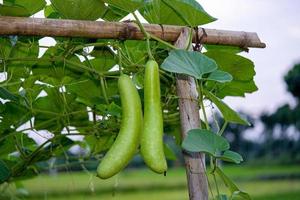
6. Cranberry
Cranberries are more than just a tangy snack—they’re a powerful ally for your kidneys. These little berries are packed with antioxidants, particularly proanthocyanidins, which play a pivotal role in kidney health. Proanthocyanidins are compounds that help prevent harmful bacteria from sticking to the walls of the urinary tract, which can reduce the risk of urinary tract infections (UTIs). UTIs, if left untreated, can
lead to more severe kidney infections, potentially causing kidney damage. Studies show that cranberries can significantly lower the occurrence of UTIs, which is particularly beneficial for those who are already at risk, such as individuals with chronic kidney disease.
A study published in the Journal of Urology found that cranberry products reduced the risk of recurrent UTIs by 20–30% in women, and the same benefits could be seen in people with kidney issues. Though cranberries alone can cure kidney disease, they can play a vital role in preventing infections that could worsen kidney function. With around 10% of the global population suffering from kidney disease, protecting these organs from infections is more important than ever. Regularly adding cranberries to your diet—whether fresh, dried, or in juice form—could be a small yet impactful step in supporting kidney health and preventing complications.

7. Blueberry:
Blueberries offer significant advantages for kidney health, primarily due to their rich antioxidant profile, low potassium content, and anti-inflammatory characteristics. The following points illustrate their benefits:
1. Abundant in Antioxidants
Blueberries are rich in anthocyanins and vitamin C, which serve to shield kidney cells from oxidative damage and inflammation. This is especially advantageous for individuals suffering from chronic kidney disease (CKD).
2. Low Potassium Levels
In contrast to many other fruits, blueberries possess a relatively low level of potassium, making them a suitable choice for those with kidney disease who must monitor their potassium consumption.
3. Anti-Inflammatory Effects
Chronic inflammation can lead to kidney impairment. The polyphenols found in blueberries are effective in mitigating inflammation and safeguarding kidney function.
4. Potential to Prevent Kidney Stones
Certain compounds in blueberries may lower the likelihood of developing kidney stones by inhibiting the accumulation of calcium oxalate.
5. Promotes Cardiovascular and Blood Pressure Health
Given that hypertension is a major contributor to kidney disease, blueberries can indirectly enhance kidney health by aiding in the regulation of blood pressure.
Incorporating Blueberries into a Kidney-Friendly Diet
– Enjoy fresh blueberries as a nutritious snack.
– Blend them into smoothies with low-potassium fruits.
– Add them to oatmeal or yogurt, provided these are permitted in your dietary plan.
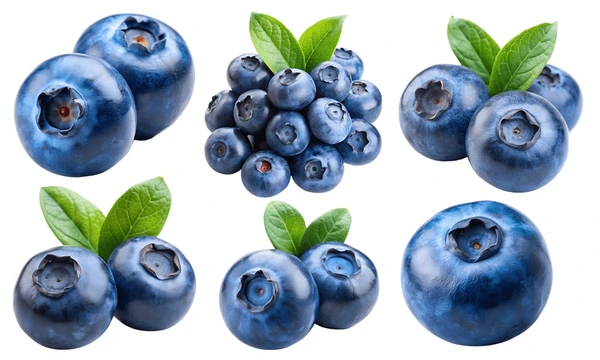
8. Raspberry:
Raspberries offer significant advantages for kidney health owing to their impressive nutrient composition. The following points illustrate how they can enhance kidney function:
Advantages of Raspberry for Kidney Health:
Low Potassium Content: Raspberries have a lower potassium level compared to various other fruits, making them an appropriate option for individuals with kidney disease who must regulate their potassium consumption.
Abundant in Antioxidants: They are rich in ellagic acid and anthocyanins, which contribute to reducing inflammation and oxidative stress, thereby safeguarding kidney cells from potential harm.
Excellent Fiber Source: The fiber present in raspberries aids in digestion and may assist in regulating blood sugar levels, which can lower the risk of kidney damage associated with diabetes.
Anti-Inflammatory Effects: Chronic inflammation poses a risk for kidney disease, and the polyphenols found in raspberries play a role in mitigating inflammation.
Promotes Cardiovascular Health: Given the close relationship between kidney disease and heart disease, the heart-healthy properties of raspberries, attributed to their high flavonoid content, may indirectly benefit kidney function.
Considerations: Although raspberries are generally safe for consumption, excessive intake may not be advisable for those adhering to strict phosphorus or oxalate limitations, as they contain moderate levels of these minerals.
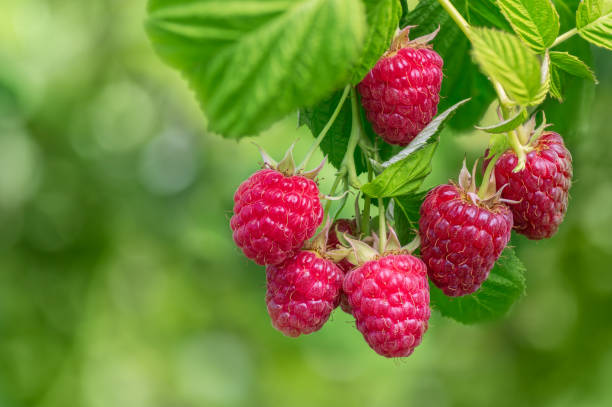
9. Red grape:
Red grapes offer significant advantages for kidney health, attributed to their nutrient-rich composition and antioxidant characteristics. The following points illustrate their benefits:
1. Abundant in Antioxidants: Red grapes are sources of resveratrol, flavonoids, and vitamin C, which contribute to the reduction of inflammation and oxidative stress in the kidneys. This can help mitigate kidney damage, particularly in individuals with chronic kidney disease (CKD).
2. Low Potassium Content: For those with kidney concerns, elevated potassium levels can pose risks. Red grapes have a comparatively low potassium content relative to other fruits such as bananas and oranges, making them a safer option for individuals with kidney conditions.
3. Promotes Hydration and Detoxification: With their high water content, red grapes assist in flushing out toxins from the body and support kidney function by helping to prevent dehydration.
4. Decreases Uric Acid Levels: These fruits aid in lowering uric acid levels, which can reduce the likelihood of developing kidney stones and gout-related complications.
5. Enhances Blood Circulation:
The resveratrol found in red grapes promotes healthy blood circulation, thereby decreasing the risk of high blood pressure, a common factor contributing to kidney damage.
Considerations:
Individuals with advanced kidney disease should monitor their phosphorus intake, as grapes contain a small amount. Additionally, those with diabetes should be cautious about their grape consumption due to the presence of natural sugars.
In summary, red grapes can be a kidney-friendly fruit when consumed in moderation, particularly for those managing kidney disease or seeking to maintain kidney health.
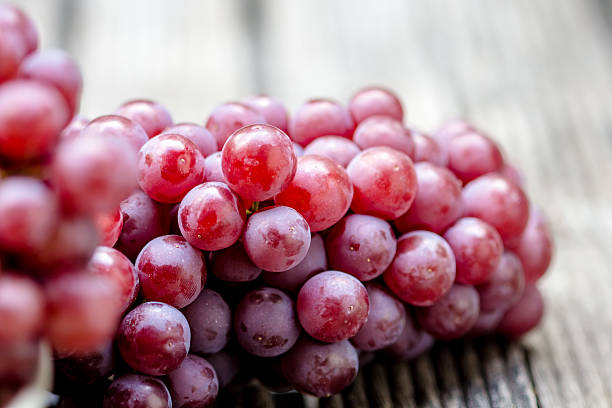
10. Apple:
Benefits of Apples for Kidney Health
Low in Potassium: Compared to many fruits, apples have a lower potassium content, which is beneficial for those managing potassium levels due to CKD.
Rich in Fiber: The fiber found in apples, particularly pectin, plays a role in regulating blood sugar and cholesterol, helping to lower the risk of complications related to kidney health.
Anti-Inflammatory Properties: Apples boast antioxidants and flavonoids that assist in reducing inflammation and oxidative stress, both of which can negatively affect the kidneys.
Supports Heart Health: With the close connection between kidney disease and heart issues, apples can help maintain cardiovascular health by lowering bad cholesterol and supporting healthy blood pressure levels.
Aids Digestion & Reduces Toxins: The fiber in apples promotes digestive health and helps decrease uremic toxins, which can accumulate in the bloodstream when kidney function is impaired.
Hydration & Detoxification: Apples are high in water content, aiding in kidney hydration and supporting their natural detox processes.
How to Consume Apples for Kidney Health
Raw: Eating a fresh apple is the most rewarding way to enjoy its health benefits.
Baked or Stewed: This method is perfect for those dealing with digestive issues.
Apple Juice (in moderation): It’s best to avoid commercially made juices with added sugars; homemade juice is the way to go.
Apple Cider Vinegar: Some research indicates it may help prevent kidney stones.
Who Should Be Cautious?
If you have diabetes, it’s essential to monitor your apple intake due to their natural sugar content.
If you’re following a potassium-restricted diet, be sure to consult your doctor about the right portion sizes for your needs.
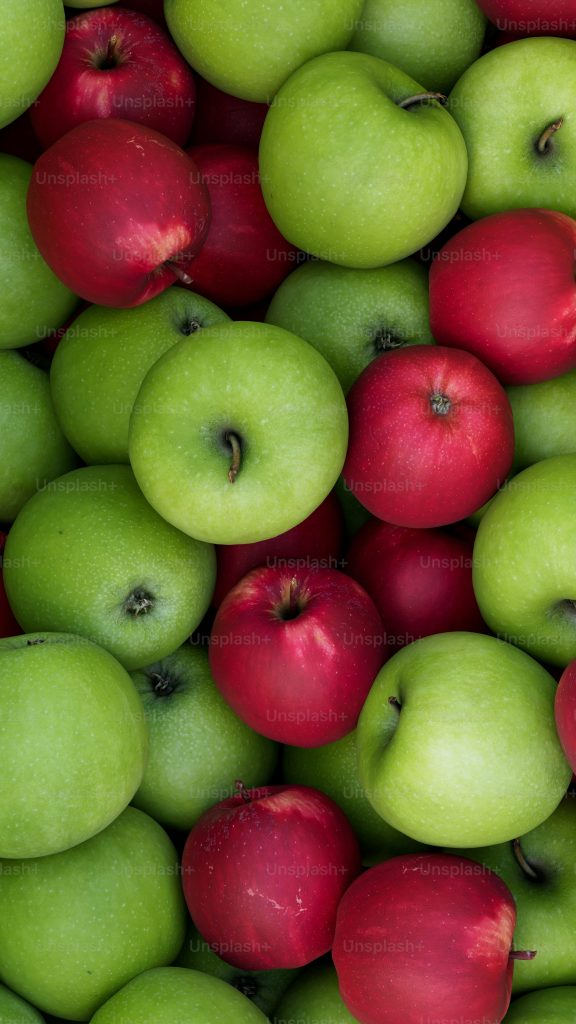
11, Papaya:
Papaya can play a beneficial role in kidney health in several ways, thanks to its rich nutrient profile and beneficial compounds:
1. Rich in Antioxidants
– Papaya is packed with vitamin C, flavonoids, and beta-carotene, which help reduce oxidative stress and inflammation in the kidneys.
– It can protect kidney cells from harm caused by toxins and free radicals.
2. Improves Digestion & Reduces Toxin Buildup
– The enzyme papain found in papaya aids digestion, thereby easing the burden on the kidneys by preventing toxin buildup.
– A well-functioning digestive system supports the proper elimination of waste.
3. Moderate Potassium Levels (When Ripe)
– Unlike bananas or oranges, ripe papaya has moderate amounts of potassium, making it a suitable choice for those with kidney issues who need to monitor their potassium intake.
– In contrast, unripe papaya has higher potassium levels, requiring careful portion management.
4. Gentle Diuretic Properties
– Papaya has mild diuretic effects, helping the body to eliminate excess fluids and toxins through urine.
– This can be beneficial for those dealing with slight fluid retention and may assist in avoiding kidney stone development
5. Anti-Inflammatory Benefits
– Chronic kidney disease (CKD) is linked to inflammation, and papaya contains choline and flavonoids, which help reduce inflammation and support kidney function.
6. It May Help Lower Uric Acid Levels
– High uric acid levels can result in kidney stones and gout.
– The alkaline nature and antioxidants in papaya aid in regulating uric acid levels and improving kidney function.
Precautions
– Those with advanced kidney disease should keep track of their potassium intake and consult with a healthcare professional before adding papaya to their diet regularly.
– Unripe papaya should be consumed cautiously due to its elevated potassium content.
Need more engaging content? Use our free AI Text Generator.

12. Pineapple
Pineapple contributes to kidney health in various ways due to its unique nutrient profile and anti-inflammatory characteristics. The following outlines its benefits for kidney function:
Low Potassium Content: Pineapple has a lower potassium level than many other fruits, such as bananas and oranges, making it a suitable choice for individuals with chronic kidney disease (CKD) who must monitor their potassium consumption.
High in Vitamin C: The presence of vitamin C in pineapple acts as an antioxidant, which can help mitigate inflammation and oxidative stress, thereby promoting overall kidney health.
Presence of Bromelain: Pineapple is rich in bromelain, an enzyme known for its anti-inflammatory and immune-enhancing effects. It may assist in alleviating kidney inflammation and fostering kidney well-being.
Hydration Benefits: With its high water content, pineapple aids in maintaining hydration (which is essential for kidney function), thus assists in the elimination of toxins.
Natural Diuretic Effects: Certain components in pineapple may enhance urine production, thereby facilitating the kidneys’ ability to filter waste more effectively.
Heart Health Support: Given the close relationship between kidney disease and cardiovascular health, the antioxidants and fiber found in pineapple can help lower the risk of hypertension and heart disease, which in turn benefits kidney function.
Considerations:
While pineapple offers numerous advantages, it does contain natural sugars, so individuals with diabetes or blood sugar issues should consume it judiciously. Additionally, those prone to kidney stones should be aware of the oxalate levels in pineapple, although they are relatively low compared to other fruits.

13. Olive Oil:
Because of its anti-inflammatory and antioxidant qualities, olive oil—especially extra virgin olive oil—can be good for kidney health. Here’s how it could be useful:
1. Guards against CKD, or chronic kidney disease:
Monounsaturated fats (mostly oleic acid) and polyphenols, which are abundant in olive oil, aid in lowering oxidative stress and inflammation, two factors that significantly contribute to chronic kidney disease.
By minimizing the load on the kidneys, it may decrease the progression of renal disease.
2. Aids in blood pressure management:
One of the main risk factors for renal disease is high blood pressure. Better blood pressure regulation results from the heart-healthy lipids in olive oil, which also enhance blood vessel function.
3. Improves insulin sensitivity & lowers the risk of diabetes:
One of the main causes of kidney disease is diabetes. Olive oil lowers the risk of diabetic kidney damage by regulating blood sugar and improving insulin sensitivity, particularly in a Mediterranean diet.
4. Enhances heart health and reduces bad cholesterol (LDL):
Elevations of unhealthy cholesterol can lead to kidney injury. Olive oil helps avoid vascular problems that might deteriorate kidney function and maintain a healthy lipid profile.
5. Offers a Source of Kidney-Friendly Fat:
Limiting protein and phosphorus intake is frequently necessary for those with renal disease. Olive oil is a healthy energy source that doesn’t strain the kidneys because it doesn’t contain phosphorus.
How to take care of your kidneys using olive oil:
For the greatest advantages, use extra virgin olive oil (EVOO).
Use it to drizzle over vegetables, make salad dressings, or cook with.
Steer clear of overheating since it can damage healthy polyphenols.
Precautions
One to two tablespoons of olive oil should be consumed daily. Excessive amounts can lead to weight gain.
Instead of being a stand-alone treatment, it ought to be a component of a well-balanced diet.

14. Onion:
Onions can be beneficial for kidney health, especially for individuals with kidney disease or those at risk of kidney issues. How they assist is as follows:
Onions’ Advantages for Kidney Health:
Low in Potassium: Onions are a kidney-friendly meal because they are low in potassium, which is especially beneficial for those with chronic kidney disease (CKD) who must restrict their potassium consumption.
Antioxidant-rich: They contain quercetin, a potent antioxidant that may help lower oxidative stress and inflammation, protecting the kidneys.
Supports Heart Health: Onions’ capacity to reduce blood pressure and cholesterol is advantageous because renal disease raises the risk of heart issues.
Natural Detoxifier: Sulf anti-inflammatory properties: People with renal illness may benefit from the anti-inflammatory properties. The presence of flavonoids
in onion helps to control blood sugar, which over time can harm kidneys.
How to add onions to a diet that is kidney-friendly: Add raw onions to the sandwiches or salads.
Add them to stir-fries, stews, and soups.
Add some flavor by sautéing with kidney-friendly garlic.
Use them as a seasoning alternative to salt to reduce sodium intake.
Who Needs to Exercise Caution?
People who have stomach problems or acid reflux may need to limit their intake of onions.
To guarantee appropriate portion management, those with advanced kidney disease and are following a highly tight diet should speak with a physician or nutritionist. Studies
found that onions help to detoxify the body and lessen the strain on the kidneys.

15. Garlic
Garlic contributes to kidney health through various mechanisms attributed to its potent medicinal properties. The following outlines its benefits for the kidneys:
Anti-Inflammatory Effects: The presence of allicin in garlic is recognized for its anti-inflammatory and antioxidant characteristics. This compound aids in diminishing inflammation within the kidneys and mitigating damage from oxidative stress.
Blood Pressure Management: Elevated blood pressure is a significant risk factor for kidney disease. Garlic possesses natural antihypertensive qualities that assist in lowering blood pressure, thereby alleviating stress on the kidneys.
Detoxification Support: By enhancing liver function, garlic indirectly benefits the kidneys by facilitating the efficient removal of toxins from the body, thus lessening the load on the kidneys.
Antimicrobial Properties: Garlic exhibits natural antibacterial, antiviral, and antifungal effects, which can help avert urinary tract infections (UTIs). If untreated, UTIs can escalate to kidney infections.
Cholesterol Management: Garlic is effective in reducing low-density lipoprotein (LDL) cholesterol while increasing high-density lipoprotein (HDL) cholesterol, thereby lowering the risk of kidney-related issues linked to elevated cholesterol levels.
Enhanced Circulation: Garlic fosters improved blood circulation and inhibits clot formation, ensuring that the kidneys receive sufficient oxygen and nutrients necessary for optimal function.
Mild Diuretic Effects: Acting as a gentle diuretic, garlic aids the body in expelling excess sodium and water, which can help prevent kidney strain and decrease the likelihood of fluid retention and high blood pressure.
Protection Against Kidney Disease: Research indicates that garlic may slow the advancement of chronic kidney disease (CKD) by alleviating oxidative stress, inflammation, and fibrosis within the kidneys.
For optimal benefits, garlic can be consumed in its raw form, cooked, or as a dietary supplement. However, individuals with kidney disease or those taking blood-thinning medications should seek advice from a healthcare professional before significantly increasing their garlic intake.

15. Fishes for Preserving Your Kidney:
Fish that are typically high in omega-3 fatty acids, low in phosphorus, and contain high-quality protein are good for kidneys. Some kidney-friendly fish options include:
1. Salmon—rich in omega-3 fatty acids, which help reduce inflammation and support heart and kidney health.
2. Tuna (light canned): A good source of lean protein with lower phosphorus content compared to fresh tuna.
3. Mackerel: It provides omega-3s but should be consumed in moderation due to its higher phosphorus levels.
4. Tilapia: Tilapia is a low-phosphorus, lean protein choice that is easy on the kidneys.
5. Cod: This is low in potassium and phosphorus while providing high-quality protein.
6. Whitefish: Offers healthy fats and protein with a moderate phosphorus level.
7. Haddock: Like cod, haddock is a lean fish with lower phosphorus levels.
Tips for Kidney-Friendly Fish Consumption:
Limit phosphorus intake: Choose fish with lower phosphorus levels or ask a doctor if a phosphorus binder is needed.
Option for fresh or frozen fish: Avoid smoked, canned (unless low-sodium), or heavily processed fish, as they may contain high sodium levels.
Control portion sizes: Overeating protein can strain the kidneys, so moderation is key.